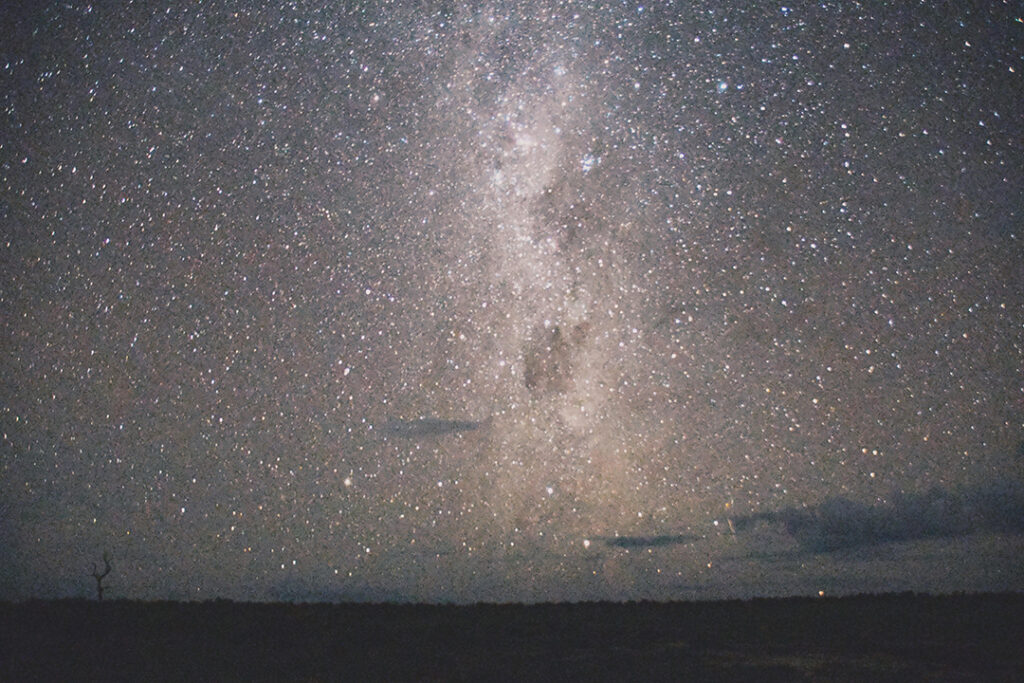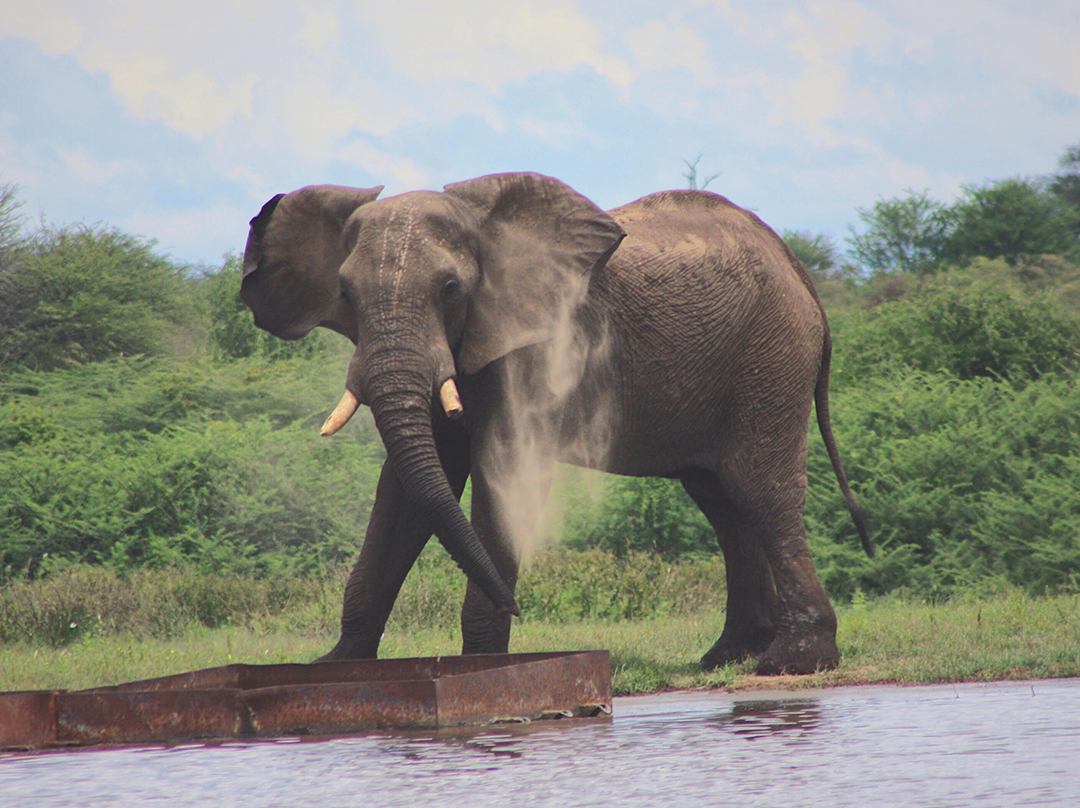Josh Brewer brought his camera to Botswana, having heard that the lack of light pollution in the African country provided one of the clearest night skies our planet has to offer. Seeing it in person, he was starstruck, so to speak.
“I definitely was not let down,” said the freshman mechanical engineering major. “At one point, the stars were touching the horizon. That’s not something you’d ever see here.”

But stargazing wasn’t Brewer’s mission during his weeklong stay in one of the world’s most sparsely populated countries. He and six classmates from Campbell’s School of Engineering had a job in Botswana last March — use the problem-solving skills they’ve learned in the classroom to help smooth out an airplane runway, provide fresh water pans for wildlife and other jobs at a camp located four-and-a-half hours from civilization. They were joined by Stephen Lee, chief scientist for the U.S. Army’s Research Office and member of the School’s external advisory board.
Among the student group was Daniel Taylor, a sophomore from Roxboro who spent the summer after his freshman year working in Africa on projects that included elephant tracking and developing solar-powered lighting systems. Taylor served as an experienced mentor for this group of underclassmen, some of whom had never traveled outside of the United States before. This trip included the longest overwater flight in the world — Atlanta to Johannesburg, South Africa (17 hours) — a two-hour sit on the runway, a two-hour drive from Johannesburg to Botswana and another four-hour drive (on partially paved and dirt roads) to the camp.
But once there, the team went to work, said Brewer.
“The entire camp runs off a solar panel and batteries,” he said, “and those batteries are supposed to last 10 years. But they weren’t running as they should, so a group of us worked together to figure out the problem.”
The group found the issue — the battery acid water mixture was evaporating too quickly. Their solution saved the batteries (all 24 of them, valued at $300 apiece) and will keep them alive longer.
Botswana is home to the world’s biggest concentration of African elephants, and hunting has been outlawed in the country for nearly four years now. The elephants have returned to the camp where the engineering student stayed — formerly a hunting camp — but their return has damaged the area’s one airstrip, a one-kilometer-long vital piece of the camp since everything else is hours away by truck. Using a drill and drill bit, some rope, a chainsaw and a few other tools available on site, the students built a roller to be dragged by a truck to smooth out the airstrip after herds of elephants and zebras trample through it.
Listen to Josh Brewer and D’Anna Dininny talk about their trip on Campbell’s Rhymes With Orange podcast
“It was cool to use some of the design thinking we’ve learned in the classroom,” said freshman D’Anna Dininny. “I’d never been in a situation before where I had to be a part of a team, come up with a brilliant idea on the spot and have people rely on that idea. I never thought I’d be that person who could come up with the ideas or resources. But this trip was an opportunity to show myself I was in the right field. It definitely made me sure of what I want to do [after graduation].”
The students made a big impression during their less-than-a-week stay. The men and women who run the camp named one of the pans — a small body of water where giant salt lakes once sat — “Campbell Pan” in honor of the group.
“There’s a little bit of Campbell now in the middle of Botswana,” Brewer said.
For sophomore Kendell Mayo, the trip validated what he’s learning at Campbell and the way he’s learning it.
“I can’t describe to you how good that feels,” Mayo said. “The hands-on approach to learning and team projects are teaching me the team, communication, problem-solving and strategizing skills I will need to be a successful engineer.”
For a group with bright futures ahead, it’s fitting that the stars — almost as much as the work itself — left such a lasting impression on the students. Especially Mayo.
“I laid on top of the truck for four hours one night, just staring,” he said. “And the more I looked, the bigger it got. Adventuring to a place so few have seen is the stuff people dream about.
“In Africa I saw what God created, and it took my breath away.”


